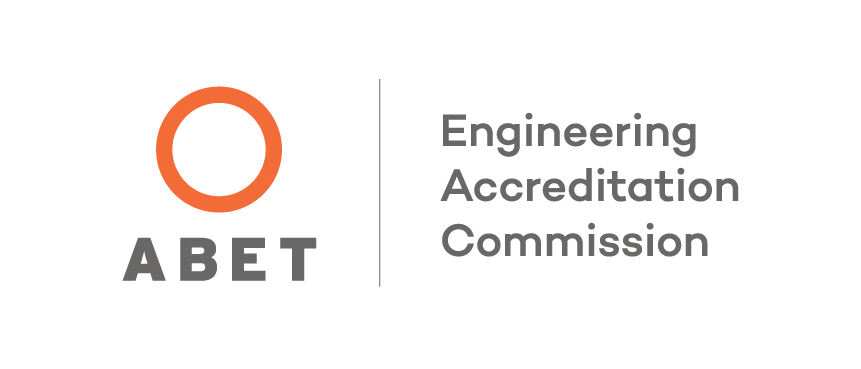
This program is accredited by the Engineering Accreditation Commission of ABET, https://www.abet.org, under the General Criteria and the Environmental Engineering and Similarly Named Programs Program Criteria.
Program Educational Objectives
In accordance with the requirements of the Engineering Accreditation Commission of ABET, by three to five years after graduation, graduates of the environmental engineering program will:
- Graduates of the program shall have careers in industry, consulting, government, or other related fields where they successfully apply their knowledge and skills to environmental engineering practice
- Graduates of the program shall continue their professional development through graduate work, workshops and seminars, and pursuit of professional licensure
- Graduates of the program shall demonstrate leadership and communication skills through project management, report preparation, and professional presentations.
- Graduates of the program shall conduct themselves in accordance with professional ethical standards.
2023-24 UNDERGRADUATE CATALOG
STUDENT LEARNING OUTCOMES
- An ability to identify, formulate, and solve complex engineering problems by applying principles of engineering, science, and mathematics
- An ability to apply engineering design to produce solutions that meet specified needs with consideration of public health, safety, and welfare, as well as global, cultural, social, environmental, and economic factors
- An ability to communicate effectively with a range of audiences
- An ability to recognize ethical and professional responsibilities in engineering situations and make informed judgments, which must consider the impact of engineering solutions in global, economic, environmental, and societal contexts
- An ability to function effectively on a team whose members together provide leadership, create a collaborative and inclusive environment, establish goals, plan tasks, and meet objectives
- An ability to develop and conduct appropriate experimentation, analyze and interpret data, and use engineering judgment to draw conclusions
- An ability to acquire and apply new knowledge as needed, using appropriate learning strategies
Enrollment and Graduation Data
Fall Enrollment
| |
18-19 |
19-21 |
20-21 |
21-22 |
22-23 |
23-24 |
| Environmental Engineering |
30 |
30 |
35 |
38 |
31 |
24 |
Completions (July 1st to June 30th)
| |
18-19 |
19-21 |
20-21 |
21-22 |
22-23 |
23-24 |
| Environmental Engineering |
5 |
5 |
5 |
11 |
11 |
TBD |